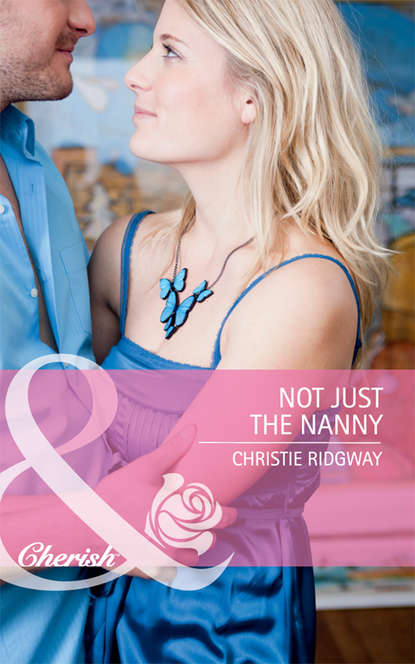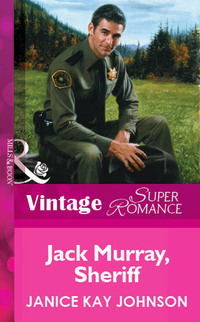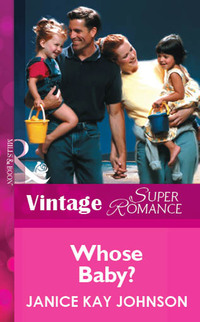
Полная версия
The Russell Twins
She flushed, and he smiled. Good, he thought.
Then he wondered at her choice of verb tense. Had implied that she no longer had a job, or perhaps the condo. Or both.
“How long do you plan to be here?” he asked.
“I don’t know. Depends how quick Dad recovers, how much of a nuisance Rory turns out to be.”
Gray frowned. “Has Faith called the police or tried to get a protection order?”
Charlotte shook her head. “I don’t think so. We’ll talk about it.” She eyed him. “Is this traffic thing something I should know about?”
“Depends how involved you get with the farm. I’m just worrying about your customers pulling out right onto the highway, especially on this curve here. Somebody misjudges distance or speed, and we’ll have multiple fatalities.”
“What do you suggest?” she shot back. “We sell the farm? You know a housing development will replace it. Then you’ll have that traffic to contend with.”
“Developers,” he pointed out, “are required to mitigate traffic problems. Maybe pay for a left-turn lane, and to add one to give cars pulling out room to accelerate.”
“We can’t afford anything like that.” She stared him down. “Why don’t you go to the state and ask for a lower speed limit, or a center lane?”
“Because that would take years, expensive studies and bureaucratic obstacles beyond either of our imaginations. Meantime, people are going to die.”
“You don’t want us running a retail business right off the highway.”
“I’m not happy about it.” Or about alienating her before he’d even had a chance to ask her to dinner. “I’ve got a couple of ideas, though.”
She gave her head a quick shake. “You’ll want to talk to Faith, then. With Dad so woozy, she’s the decision-maker. I’m here to be a minion.”
His mouth quirked. “A minion?”
“Yeah, you know. A helper. A floor-mopper, cashier. I suspect she’ll have me making jam and driving the tractor before I know it. A nurse, too, I suppose, when Dad comes home.” She made a face at that. “Although Faith would be much better at nursing than I would.”
“Because of her gift for serenity.”
“And my impatience with my fellow human beings.”
“What do you do for a living?” he asked.
“Design software.” She pressed her lips together, opened them as if to say something else, then decided not to.
A solitary occupation. He wondered what kind of software she designed. Word processing? Financial? Something arcane that made computers run faster or repelled viruses? Games?
Probably not games.
He glanced over his shoulder and saw that a van was pulling in. A family would shortly be spilling out of it.
“Nice to meet you, Charlotte Russell,” he said with a nod. “I’ll see you again soon.”
For the first time, her expression seemed to turn shy. Her tone, in contrast, was flip. “Like I told you, Faith’s the one you want to talk to.”
“Oh, I don’t know,” he said. “I think I’d enjoy talking to you.”
She gave him a look that, if he wasn’t mistaken, held alarm.
The van came to a stop. When the side door slid open, at least four kids scrambled out, as well as two women from the front seats.
She said only, “I’ll tell Faith you were here,” and greeted the customers, leading the way into the barn.
Not until Gray was alone did he say softly, “Faith’s not the one I want.”
Want, he thought, was a mild word for what he felt for a woman he’d barely met. One who was prickly in personality and too skinny. He’d liked how fierce she had been in her sister’s defense, but her smile was what had really gotten to him. Her smile, and the vulnerability he’d seen in her eyes.
But he’d seen plenty of beautiful smiles, and had met his share of women who looked as if they needed somebody to take care of them. So why, this time, did he feel as if he’d been sucker punched?
Frowning, he got in his car. By the time he backed out, he was already thinking about how soon he could stop by the Russell farm again.
CHAPTER TWO
FAITH SAT AT THE KITCHEN TABLE cutting circles out of calico fabric, each of which would dress up a jar of jam or jelly. Her scissors followed the lines she’d traced on the fabric with a quilter’s marker, using a saucer as the pattern. The fabric would be held taut across the top of the jar, then flare into a ruffle below the ring. The work to make the Russell Family Farm jams and jellies look fancier—more worthy of gift-giving—was worth it, she thought.
Out of the corner of her eye she watched Char use tongs to lift sterilized jars from a large pot of boiling water. Raspberry jam bubbled on the other larger burner. She’d looked aghast when Faith tried to give her the job of cutting fabric.
“Don’t you remember what a disaster I made out of every sewing project I ever tried?”
“Um … yes.” Faith actually had forgotten. Although how, she couldn’t imagine. The apron Char had once made Mom for Christmas had been … Well. She cleared her throat. “This is just tracing and cutting.”
Backing away from the proffered fabric yardage Faith had held in outstretched hands, Char said firmly, “I’d a thousand times rather make jam.”
The Russells had hardly ever bought fruit or vegetables; they grew and preserved their own. By the time the girls were ten years old, they could can green beans or whip up a batch of apple jelly or blackberry jam without supervision. Faith had always been more eager to learn chores like that—she’d liked just about everything to do with farm life better than her sister had. But, obviously, the lessons had stuck even for Char, who’d been able to jump in without hesitation this morning, leaving her sister to water potted plants in the nursery and then start the finicky work of tracing circles.
It was wretchedly hot today, and even with windows standing open and a rotating fan running nonstop, it was at least ninety degrees in the kitchen. Poor Char, who had gotten sunburned yesterday helping pick the berries, had lost all resemblance to the chic urban woman who had arrived two days ago. Despite the fact that she wore only shorts and a tank top, she was sweating and kept having to reach for a kitchen towel to wipe her face. Her hair poked up in damp tufts and stuck to her forehead and temples. Forget makeup. She hadn’t bothered with earrings this morning, either.
She was trying; Faith had to give her that. No, the fact that she was here at all was amazing enough.
Be grateful for that.
Faith was trying, too—to be grateful, that is. She was trying not to hate the fact that Char could hardly stand to look at her.
Char was handling this stay she’d felt obliged to make by sticking to business. They talked about Dad and how they’d take care of him once he came home, about the corn grown almost tall enough to open the maze to the public, about how much jam would sell and about whether they could afford to increase the hours of the teenage girl Faith had recently hired to help out part-time.
And Rory. Char wanted to talk about him, too. Faith was the one sliding away from that conversation because she knew perfectly well that Char would want to take action that Faith didn’t believe was justified. It wasn’t as though she still loved him; he’d killed anything she’d once felt for him a long time ago, but she did have memories of the Rory she once had loved. And he’d give up eventually on his own, wouldn’t he? When he couldn’t get a rise out of her either way?
But that was one of the many ways she and Charlotte differed. Char’s instinct was always to come up swinging. Literally, when they were kids—Char was the only girl at their elementary school who was called in to the principal’s office not just once, but twice for brawling. Both times she was defending Faith, who hadn’t seen any need for defense.
Char, she knew, would have booted Rory out on his butt the first time he questioned why she was late and who she’d been talking to. She wouldn’t have waited until he hit her, and she’d never have given him second and third and fourth and fifth chances. In Rory’s case, Char would have been right. As it turned out, he hadn’t deserved any of those chances. But people often did, in Faith’s experience, so was it really so awful that she’d wanted to believe in the man she had loved?
She should try to articulate how she felt to her sister. After all, she was the one who had begged Char to come and who had admitted that Rory scared her. But Charlotte-at-a-distance and Charlotte-actually-here were not at all the same sister. It was a little like the way Faith saw Rory, as if he were a layer of transparencies on the overhead projector in her classroom, and she could peel a few off and there would be the Rory she’d first known.
The Charlotte she’d first known was her twin. Her other half. They’d curled in the womb together, slept side by side in the same crib, shared toys and clothes and their mother’s arms. They’d never needed words to understand each other.
Which made it all the sadder that now they needed words and couldn’t bring themselves to speak them.
She had never understood why Char had hated having an identical twin. Faith only felt whole when Charlotte was near. They reflected each other, yes, but they each had their own strengths and weaknesses. They complemented each other.
That’s not how Char felt about it. It was as if … as if Faith’s very existence lessened her. One of Faith’s earliest memories was of Charlotte screaming and struggling because Mom was trying to make her wear the pretty pink parka that was just like Faith’s. They couldn’t have been more than three years old. Charlotte had howled, over and over again, “I won’t! It’s hers! I won’t!” The scene was colored, in Faith’s memory, by her own bewilderment.
Somehow, Faith always forgot. Each time her sister came home, she expected that they would read each others’ minds from the first glance, not be unable to meet each other’s eyes.
Wouldn’t you think that after all these years, she would have gotten over it? Faith thought. Moved on? It was her own fault that it hurt so much every time Char came home and Faith saw again how much her sister wished they weren’t twins. Maybe even that the egg had remained undivided and only one of them had been born in the first place.
What was, was.
She stared blindly down at the scissors she held in her hand.
Why have I spent a lifetime feeling as if she’s a necessary part of who I am, while all she’s ever wanted is to amputate the part of her that’s me?
The great, unanswerable question.
She jumped up. “Why did I ever think decorating jars of jam was a good idea? Ugh. Let me help you.”
Her twin actually grinned at her. “Yeah, why did you? And pretty please—I’m losing control here.”
Ridiculously warmed by the flash of camaraderie, Faith took the tongs from her hand and said, “Do something about the jam. It looks like lava about ready to head for the sea.”
“Boy, this is fun,” Charlotte muttered—but not as if she really minded spending the day in the hot kitchen with her sister.
She’d be foolish to hope for too much, Faith cautioned herself. Every time Charlotte came home, Faith let herself imagine that this time they might rediscover the bond that had tied them together as children despite Char’s discomfiture. This time, Char might open herself to her sister, decide they could be friends at least.
But Faith had been hoping for a long time, and it hurt to be disappointed. Char was here out of a sense of obligation, that was all, and expecting more was asking to be hurt once again.
Faith had sworn, when she left Rory, that she’d never invite that kind of pain again.
So don’t.
THE TEMPERATURE NEVER USED TO get up into the nineties, not when she’d lived here. Summers had just plain gotten hotter. As humid as it was in the Puget Sound area, today had been close to unendurable. Thank God for indoor plumbing—Charlotte had taken three showers today—and for nightfall. It didn’t stay hot at night here summers the way it did in, say, Chicago where Charlotte had landed her first postgrad job.
It was now past midnight, and she’d tried turning out the light and going to bed, but sleep was eluding her.
Why she hadn’t tumbled onto her bed at 8:00 p.m. and conked out, she had no idea. Well, not at eight—in August, the sun didn’t set until nine-thirty or so and she’d never been able to sleep with daylight outside the window. On the other hand, she hadn’t worked this hard physically in ten years or more, and she should be exhausted.
She was, in one way—she hurt. Having made a habit out of hitting the gym at least four days a week, she’d kidded herself that she was in decent shape. Ha! Not. The damn sunburn wasn’t helping, and it was her own fault. Charlotte had forgotten how white her skin was. Sunburn wasn’t much of a problem in the foggy Bay Area, especially since a half-hour jog was about the longest she was ever outside.
But aside from the physical aches and pains, she felt weirdly energized by the past couple of days. It seemed hard work suited her, or at least that she’d needed some to pull her out of the funk she’d been in when Faith called. Picking berries, weeding the perennial beds that wrapped the barn and making jam had seemed so … real, compared to what she did normally with her life. She’d been ridiculously proud of what she had wrought, when she admired the rows and rows of jars sitting on the kitchen countertop. She was going to enjoy selling her jam.
Too bad she hadn’t made any blueberry.
She was too smart to waste a thought on Gray Van Dusen, part-time mayor, part-time architect. But she kept doing it anyway.
He was a good architect, according to Faith, and probably a good mayor, although he hadn’t been on the job long enough yet to have gotten far with West Fork’s many problems. He was also an incredibly sexy man, which was why she kept having to nudge him out of her head.
He wasn’t her usual type, which was a thin, intense geek. Funny, because even in high school that was her type. Jocks so didn’t interest her.
Gray would have been a jock. Although, in fairness, she suspected he was exceptionally smart, too. He was … not huge, but probably six feet tall or so, broad-shouldered and lean in the way of a man who probably ran for exercise, maybe still played fast-pitch or basketball but wasn’t interested in the tedium of weight lifting. His hair was just a little longer than she suspected some of his constituents would like, a brown that was streaked bronze and gold by the sun. Calm, gray eyes—what else, considering his name? A face that should have been ordinary-handsome, but was somehow more than that, maybe because his nose looked like it had been broken at some point, maybe because of those hooded eyes that were thoughtful but also tinged with humor. She didn’t see Mayor Van Dusen as being volatile. He’d be the kind to mull over his options for a good long while before he made decisions.
And stubborn. She just knew he’d be stubborn. The traffic thing, according to Faith, was an example. He’d made three visits now to discuss it, including one yesterday. Charlotte had seen him walking into the barn and had slipped out the back. Instinct had told her to evade him, jolting her into motion before she even knew what or whom she was running from.
It was just common sense, she told herself. Letting herself be attracted to a man in West Fork wasn’t logical, considering how short her stay was likely to be.
She probably hadn’t had to bother slipping out today. If he’d had traffic on his mind, it was Faith he wanted anyway, not her. But somehow, she didn’t quite believe he’d been motivated to stop by the Russell farm a second day in a row because he was determined to talk about cars merging onto Highway 519. No, he’d been interested in her. The way he’d gently suggested she walk him out to his car, and she’d obliged without a second thought … If she gave him any toehold at all, he’d be as relentless as a tiny, ceaseless drip of water that eventually hollowed out granite.
Which was why she was not going to think about him, and would continue to slip out one door when he came in the other. He’d get the message, and she wouldn’t have to bother for long.
Without turning on her bedroom light, Charlotte got out of bed, slipped on the shorts she’d worn that evening and groped with her toes for her flip-flops. Because of the heat, she’d worn panties and a tank top to bed, so she was now decent. She had a sudden craving to step outside, savor the cool night air, maybe walk away from the house, listen to the silence, and tip her head back to see the stars in a way she never could in a city.
Home smelled different, too. So, okay, part of what she’d smell was manure, but that beat automobile exhaust, didn’t it?
Faith’s bedroom was right across the hall, where it had been ever since they’d turned ten and Charlotte had insisted on having her own room. Faith, she’d known, was unhappy when she moved out and started shutting her bedroom door, but she had needed that space and privacy with a desperation she couldn’t explain, that felt like a fever reaching dangerous heights. She hadn’t wanted to hurt Faith, but she would if that was the only way she could separate herself. She’d been as miserable as if they were conjoined, condemned to share a life unless they chose the huge risk of surgical sunderance. Charlotte had read up on identical twins when she was eight or nine, and she remembered staring with fascination and horror at pictures of conjoined twins.
I could not bear it, she’d thought, and meant it.
She would have chosen in a heartbeat to have the surgery to divide them, even if she didn’t survive it. Her need had been that great, and that irrational.
Today was the first time in years that she could remember talking to Faith and laughing and forgetting, for moments at a time, that they were more than just sisters. She’d looked at Faith’s face without seeing a reflection of her own.
Maybe, at last, her efforts to define herself were working. Or maybe she had just put aside her discomfiture because Faith—and Dad—needed her.
And maybe, she thought with a twinge, it had something to do with Gray Van Dusen, who had been surprised when she told him she and Faith were identical twins.
You and Faith aren’t that much alike, are you?
No, she had thought sadly; Faith’s the strong one, and I’m the coward. Running, always running.
What she didn’t know was where she thought she was going. Just lately, it was a question she’d begun to ask herself. A need for the answer just might be one reason she hadn’t started job hunting more aggressively.
From long habit, she skipped the third step from the bottom, which always squeaked. Not that she was sneaking out, exactly, but she was in a solitary mood.
She’d put her questions out of her mind, too. Right now, she didn’t want to think about why she felt something was missing from the life she’d carved for herself. She just wanted to be.
Rather than go out the front door, which looked toward the highway, Charlotte went through the kitchen. Rows and rows of jars still sat along the countertop, the glass reflecting glints of moonlight falling through the kitchen windows. Without turning on the overhead or porch light, she stepped out the back door, the screen door creaking as she let it snap shut behind her.
The night air was as cool as she’d hoped, but with her first breath, she smelled smoke. Her head turned sharply. What was burning? Even as she hurried toward the corner of the house, her mind tried to find a good reason for a midnight fire. A woodstove? Not on a hot August day. Slash burning on cleared land, even just a neighbor who’d cut out blackberry vines. No, she’d seen the sign announcing a burn ban out in front of the fire station. And besides, she hadn’t smelled a fire when she’d gone to bed at ten or so. She rounded the house and stopped dead.
Flames crawled up the side of the barn.
Charlotte gasped, whirled around and ran back the way she’d come, stumbling once and barely noticing the pain. She flung herself up the couple of steps and through the kitchen.
At the bottom of the stairs, she bellowed, “Faith! Wake up! The barn’s on fire!” She wheeled again and raced for the kitchen, grabbed the phone and dialed 9-1-1. “Barn’s on fire,” she gasped and gave the address before dropping the telephone and bolting back outside. Heart pounding, she ran.
The fire had already leaped higher, toward the roof, but it wasn’t huge yet. Oh, God—as old as this barn was, the wood was the perfect tinder. She’d done the watering tonight, and knew exactly where she’d dropped the nozzle and where the faucet was. She turned it on full blast and aimed the nozzle toward the barn wall. Even when she pulled the hose out taut, the stream barely reached the fire, and she could see that it wouldn’t be enough, but she kept spraying, above, around, below.
The house lights had sprung on behind her, and Faith wasn’t a minute behind her, running in some kind of thin nightgown and flip-flops like Charlotte’s.
“You called 9-1-1?” she yelled as she ran past, and Charlotte yelled back, “Yes!”
There was another faucet round back, Charlotte remembered, but a minute, two minutes, passed before a second stream of water joined hers. Faith had probably had to hook up a hose.
The scream of the siren wasn’t far behind. They were lucky, so lucky, that the volunteer fire station was less than half a mile away. The first truck roared in, the headlights spotlighting Charlotte but not her sister, who was behind the barn. She kept the stream of water aimed at the barn even as the firemen ran toward her pulling a hose that made hers look like a child’s toy.
“Get back, ma’am, please get back!” she was told, and she let the nozzle fall from her shaking hand.
Adrenaline roaring through her, she backed away and kept backing until she felt mown grass under her feet again. She was hugging herself when Faith reached her and they grabbed each other and held on, neither of them looking away from the fiery scene and the eerie sight of water soaring in great arcs to cascade down over their 100-year-old barn and the licking flames.
“Oh, no, oh, no, oh, no,” Faith moaned.
“Everything inside will be wet,” Charlotte whispered.
Faith whimpered and buried her face briefly against her sister’s neck, then lifted her head again as if she couldn’t stand not to watch her dreams burn.
The smell now was stomach-turning: smoke and the wet, charred odor of a campfire doused in water. Something else, too, Charlotte thought in one corner of her mind. Gasoline, maybe from the fire trucks?
The fire sank back quickly, not big enough to defy a drowning. Faith and Charlotte clung to each other and kept watching as firemen prowled outside and stepped through the hole burned in the side of the barn to check, presumably, for hidden embers.
Eventually, one of the firemen, bulky in a cumbersome yellow suit, crossed the yard.
“Faith, is that you?”
“Yes, and Charlotte, too. Char, you remember Tim Crawford?”
She nodded. “Of course I do. I’m … um, really glad you got here so quick, Tim.”
He’d been one—two?—years ahead of them, and best friends with Jay Bridges, quarterback, whom Faith had gone with her freshman year. Charlotte had liked Tim better than Jay, not that either of them were her type.
“We’re confident we’ve got the fire out,” Tim was saying. “It’s real lucky one of you noticed it before the whole barn was engaged.”
“I couldn’t sleep,” Charlotte said. “I was just going to come out and sit on the back steps and admire the stars. But I smelled smoke the moment I got outside.”
“Lucky,” he said again, nodding. “Five, ten more minutes, you’d have lost the barn.”












